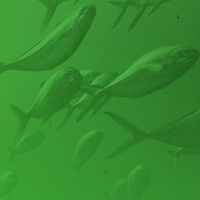-
Grants
70
-
Total Awarded
$24,232,630
-
Years
1979 - 2024
-
Categories
Grants
The Field Museum of Chicago is an educational institution with an active exhibition and public education program, and an academic institution with more than 100 years of experience in conducting scientific research and fieldwork. The Field Museum's mission is to connect individuals to the natural world and the human story. This X-Grant for professional development supports the Field Museum's diversity, equity, and inclusion work at the leadership level.
The Field Museum of Chicago (the Museum) is an educational institution with an active exhibition and public education program, and an academic institution with more than 100 years of experience in conducting scientific research and fieldwork. It is one of the largest natural history museums in the world. The Museum’s 38 permanent and six temporary exhibitions are designed to spark curiosity about life on Earth, its origins, and how its future can be protected. This award recommends renewed general operating support to the Museum.
This grant inaugurates a new partnership between two recognized leaders in biodiversity research and conservation. The Field Museum’s Keller Science Action Center translates scientific knowledge into conservation action, and since 1999 has helped protect 23 million acres of wilderness in the tropical Andes. Dr. Walter Jetz, director of Yale University’s Program in Spatial Biodiversity, is the leading force behind one of the world's leading online platforms for biodiversity informatics (Map of Life). Together, the Field Museum and Yale are empowering the park services and wildlife agencies of Peru, Ecuador, and Colombia to improve conservation actions by harnessing better information about biodiversity. The online dashboards they are developing will provide park managers with demand-driven, actionable biodiversity information and foster more accurate and efficient reporting of information to the global Convention on Biological Diversity and the public.
The Field Museum’s Keller Science Action Center integrates biological inventory and cultural preservation in the tropical Andes through an “assets-based conservation” process. Resulting Quality of Life Plans use cultural values, local knowledge and social and organizational structures to establish community conservation areas and heighten the chance that traditional livelihoods will survive outside pressures. This project magnifies previous successes by training a broad base of stakeholders to use the “asset-based conservation” approach independently with indigenous and traditional communities across the Peruvian Amazon.
In support of an artistic exchange with the Phillippines. Drawing on the Field's collection, twelve new works of visual art will be created and shared with audiences in both communities.
The Field Museum is one of Chicago’s world class institutions. It is both an educational institution with an active exhibition and public education program and an academic institution with more than 100 years of experience in conducting research and fieldwork. The Field Museum’s permanent and temporary exhibitions occupy about 300,000 square feet. Its collection contains over 25 million biological and anthropological objects. More than 1.3 million people visit the Museum annually, including 400,000 students and 5,000 teachers. The exhibitions and educational programs are informed by research from the Museum’s 28 tenured scientists and others who represent a broad range of disciplines.
The Environment, Culture, and Conservation Program of the Field Museum of Chicago integrates biological inventory and cultural preservation objectives in the Tropical Andes through an “assets-based conservation” process. The project will apply this approach in indigenous territories strategically located near Ampiyacu-Apayacu and Sierra de Divisor conservation landscapes in Northeastern Peru. Quality of Life plans will use cultural values, local knowledge and social and organizational structures to establish community conserved areas and heighten the chance that traditional livelihoods will survive outside pressures.
To involve local communities in conserving critical habitats that lack official protection and to build Malagasy capacity for conservation biology (over three years).
To involve local communities in conserving critical habitats that lack official protection and to build Malagasy capacity for conservation biology (over three years).
To define the effects of climate change on the genetic diversity of birds and small mammals in the Albertine Rift and analyze how these changes relate to the spread of disease-carrying parasites from wildlife to humans (over three years).
To define the effects of climate change on the genetic diversity of birds and small mammals in the Albertine Rift and analyze how these changes relate to the spread of disease-carrying parasites from wildlife to humans (over three years).
To assess impacts of climate change on Madagascar's endemic biota (over three years).
To assess impacts of climate change on Madagascar's endemic biota (over three years).
To use virtual worlds to build scientific literacy and knowledge of sustainable development.
To strengthen indigenous organizations in the Andean foothills and Amazon lowlands of Peru (over three years).
In support of an assessment of the impact of climate change on the elevational distribution of Malagasy land vertebrates and building capacity in conservation biology (over three years).
In support of combining traditional ecological knowledge with technical science to conserve territory of the Cofan in northern Ecuador (over three years).
In institutional support of science-based conservation efforts.
In support of efforts at Lake Park Crescent to help ensure a successful mixed-income development and broader community revitalization (over three years).
For support to investigate amphibian and reptile biodiversity of the Lower Mekong area and to enhance national capacity in herpetological research (over three years).
In support of training conservation communicators in priority protected areas of Bolivia and Peru (over three years).
In support of post-occupancy services and community building strategies for Lake Park Crescent, a new mixed-income development in Chicago, in collaboration with the Abraham Lincoln Centre.
In support of a professional Malagasy biological inventory team to build scientific and leadership capacity for conservation in Madagascar (over three years).
For a project to develop national-level expertise in amphibian and reptile diversity in Cambodia and Lao through comparative field surveys and research (over two years).
In support of the construction and occupancy of a new Collections Resource Center (over four years).
In support of the construction and occupancy of a new Collections Resource Center (over four years).
To build capacity in the survey, collection, management, and analysis of botanical information in Eastern Himalaya (over three years).
To support rapid biological inventories and science-based conservation action in four key sites in Cuba (over three years).
To support a collaborative program to strengthen conservation science in the Great Lakes region of eastern Africa (over four years).
To support a collaborative program to strengthen conservation science in the Great Lakes region of eastern Africa (over four years).
To support rapid biological inventories in the Cordillera Azul in Peru and in the Upper Aguarico River region in Ecuador (over three years).
To support rapid biological inventories in the Cordillera Azul in Peru and in the Upper Aguarico River region in Ecuador (over three years).
To develop a web-based guide to Tanzanian mammals, with an emphasis on the fauna of the Eastern Arc mountains.
To develop a web-based guide to Tanzanian mammals, with an emphasis on the fauna of the Eastern Arc mountains.
To develop a field guide to the birds of Peru.
To support the Urban Research Initiative, which provides research assistance to community-based organizations.
To develop a plan to share central African biological data, collected by the museum and European institutions, with Makerere University.
To support programs linking local and international conservation efforts (over three years).
To support Understanding Civic Activism and City Life, a project to provide research assistance to community-based organizations.
To support the exhibition "Living Together" and ancillary educational programs.
To launch the Conservation Training Consortium, a training program in conservation biology for conservation professionals from developing countries (over three years).
To support a training program in ecology for professors and students at the University of Antananarivo (over three years.)
To support a collaborative training program with the Makerere University Institute of Environment and Natural Resources (over five years).
To support an advanced training program for Malagasy students, in conjunction with an international scientific meeting.
In support of general operations (over three years).
To support a collaborative program with the Chicago Zoological Society and the University of Illinois at Chicago for advanced training in conservation biology for scientists and managers from tropical countries (over three years).
To develop the permanent museum exhibition on Africa and ancillary public programming.
To support preliminary planning and investigation of the Chicago Museum School.
In support of general operations (over two years).
To support a collaborative effort with the Universiti Kabangsaan Malaysia, Sabah Campus, for a research and training program in conservation science (over three years).
To support the research and training program, in collaboration with Silliman University and the Philippine National Museum (over three years).
In support of general operations (over three years).
To support the Chicago Seminars on the Future.
To support Discovery Seminars and Congresses.
To support the field work of Gregory M. Mueller in Costa Rica, to study higher fungi.
In support of general operations (over two years).
To support the endowment campaign.
In support of general operations (over two years).
In support of general operations.
In support of general operations.
In support of general operations.
In support of general operations.
In support of general operations.








